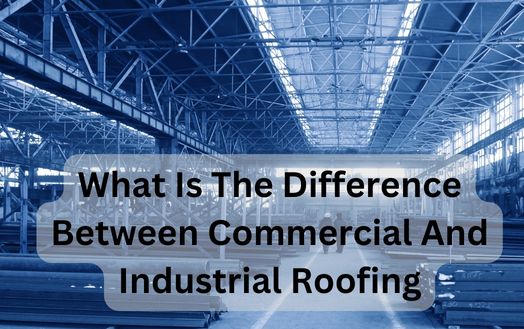
When it comes to roofing, there are different types of roofs suited for various purposes. Two of the most commonly heard terms in roofing are commercial roofing and industrial roofing. While they may sound similar, there are notable differences between the two. In this blog, we will discuss what is the difference between commercial and industrial roofing.
Commercial roofing refers to the installation and maintenance of roofs on commercial properties. Unlike residential roofing, which is designed for homes, commercial roofs are specifically constructed to protect commercial buildings from weather conditions and other external factors. In terms of types of roofs, commercial roofing systems are typically flat or low-sloped to accommodate the size and nature of the work in commercial buildings.
Commercial roofing encompasses the installation and maintenance of roofs on commercial properties. These roofs are specifically designed to protect commercial buildings, such as office complexes, strip malls, and shipping centers, from weather conditions and other external factors. Unlike residential roofs, which are often sloped, commercial roofing systems are typically flat or low-sloped, making them suitable for the larger size of commercial buildings. The type of roofing material used for commercial roofs varies based on the size and purpose of the commercial building, types of roofs, with options ranging from standard roofing materials like asphalt shingles to membrane materials.
One of the key features of commercial roofs is their flat or low-sloped design, allowing for a more efficient use of space. This flat roof type makes it easier to install certain features, such as solar panels, to enhance the energy efficiency of commercial buildings. Commercial roofing systems also incorporate different types of roofing material, including metal roofing, which is known for its durability and longevity. Additionally, commercial roofs can include roofing systems like roof coatings, which provide an additional layer of protection against weather conditions, prolonging the lifespan of the roof. To know more about this, talk to your trusted commercial roofing company NJ.
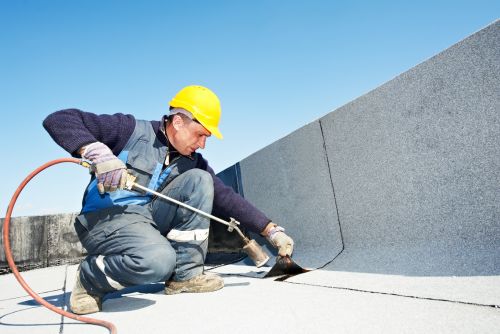
Industrial roofing, on the other hand, focuses on the installation, repair, and maintenance of roofs on industrial properties. Industrial roofing differs from commercial roofing in terms of the types of properties it caters to, as well as the materials used. Industrial roofs are typically found on buildings such as power plants, factories, and warehouses, which require roofs that can withstand the nature of the work carried out within them.
Industrial roofing refers to the installation, repair, and maintenance of roofs on industrial properties. These roofs are specifically designed to meet the unique requirements of industrial facilities, such as power plants and factories. The materials used in industrial roofing systems differ from those used in commercial and residential roofing. This type of roof is built to withstand the nature of the work conducted in industrial facilities, which often involves exposure to chemicals, extreme heat, or heavy machinery.
Characteristics of industrial roofs include the use of materials such as metal, asphalt, or membrane materials, which can handle the nature of the work conducted in industrial facilities. These roofs are often larger in size, reflecting the scale of industrial buildings, such as power plants or warehouses. Additionally, industrial roofs may incorporate features like solar panels or ventilation systems to cater to the specific needs of the industrial facility. One of the differences between industrial and commercial roofs is the level of exposure to chemicals, excessive exposure, and the elements, making maintenance and preventative inspections crucial to avoid major repairs and operational disruptions.
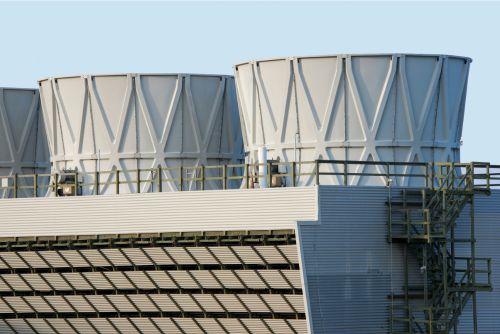
When it comes to the size and scope, there is a notable difference between commercial and industrial roofs. Aside from that, what is the difference between commercial and industrial roofing? Commercial roofs can range from small businesses to large commercial complexes, with the size of the roof often depending on the nature of the commercial building. On the other hand, industrial roofs cover a broad spectrum of sizes, accommodating the space requirements of industrial facilities such as power plants, factories, and warehouses. The size of industrial roofs is typically larger, reflecting the scale of industrial operations.
The size of commercial roofs can vary significantly, depending on the size of the commercial building. Commercial roofing systems cover the entire roof of the building, providing protection and insulation for the commercial property. The installation process for commercial roofs is customized to fit the specific size and scope of the commercial building, ensuring efficient coverage and optimal performance. Regular inspections of commercial roofs are necessary to maintain the integrity of the entire roofing system and address any issues before they become major problems.
Industrial roofs come in a wide range of sizes to accommodate the spatial needs of industrial facilities. The selection of roofing materials for these roofs is influenced by the size and scope of the industrial property, ensuring that the roof system is designed to support the operational requirements of the facility. Installation requirements are tailored to the specific size and layout of industrial facilities, while maintenance addresses the unique challenges associated with the size of these properties. This tailored approach ensures that the roof system meets the specific needs of the industrial property.
Roofing materials are crucial to the structural integrity and longevity of the roof. Different materials are used in commercial and industrial roofing, with each serving specific purposes. Understanding the differences in the materials used for commercial and industrial roofs is essential for making informed decisions about commercial roof replacement NJ or new roof installation. In Corpus Christi, the choice of materials varies based on the size and scope of the project, but at the most basic level, each material contributes to the functionality and durability of the roof.
When it comes to commercial roofing, the materials used are specifically designed for flat or low-sloped roofs commonly found on strip malls, standard roofing materials, and shipping centers. These materials are chosen for their ability to provide protective roofing solutions for commercial buildings. Typically, commercial roofing systems involve membrane materials and asphalt shingles, as the nature of the work demands materials that can withstand excessive exposure. This means that the materials used for commercial roofing are carefully selected for their durability and suitability for the job at hand.
Industrial roofing materials are tailored to meet the specific requirements of industrial properties, such as power plants, football fields, and sensitive chemical facilities. These materials are engineered to withstand the demands of the work environment, providing protective roofing solutions. Typically, industrial roofing systems incorporate metal roofs, solar panels, and a combination of tar materials. The design is aimed at enduring the most extreme weather conditions, making them a reliable choice for industrial settings.
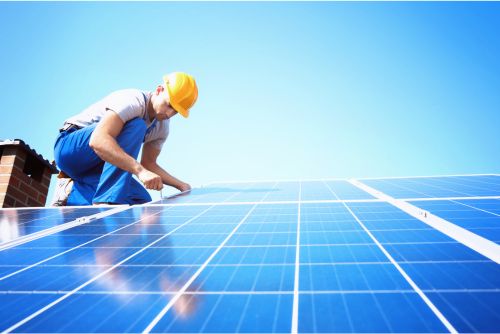
When it comes to the installation process, commercial roofing typically involves a faster installation time compared to industrial roofing. Commercial roofs, like those seen in Corpus Christi, are often more straightforward to install due to their design, which is similar to a typical residential roof at the most basic level. On the other hand, industrial roofs, often requiring new roof construction or roof replacement, are more complex and time-consuming to install due to their size and structural requirements. Hence, a different approach and skill set are needed for each type of project and it is a must to consult a commercial roofing contractor NJ.
When installing commercial roofs, sufficient time is needed for standard roofing materials. The installation duration varies based on the building size and roof type, including flat roofs or modified bitumen. It involves fitting protective materials and demands regular inspections and preventive maintenance. Commercial roof installations prioritize durability and longevity, essential for buildings like typical residential roofs in Corpus Christi. These factors contribute to the professional approach required for the meticulous installation of a new roof, ensuring its reliability at the most basic level.
When it comes to industrial roofing, the installation process must be tailored to the specific needs of the property. This typically involves the installation of metal roofs, membrane materials, solar panels, ventilation systems, and protective roofing materials. The installation time for industrial roofs can vary based on the type of roof and additional components, such as solar panels. Regular inspections and preventative maintenance are crucial for industrial roofing systems to ensure longevity and performance.
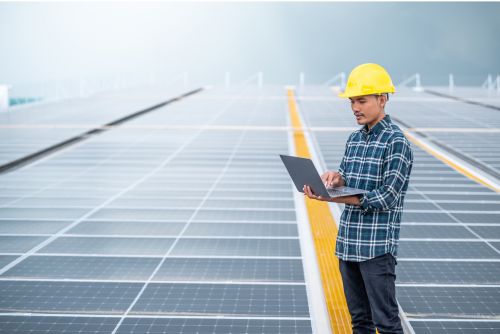
When maintaining and repairing commercial roofs, it’s essential to consider the scale and complexity of the roofing system. The types of repairs and maintenance required for industrial roofs may differ significantly from those needed for commercial roofs. Understanding these distinctions is crucial for ensuring that the roof remains in optimal condition and delivers long-term performance.
Repairing commercial roofs often involves replacing damaged asphalt shingles. It addresses minor issues such as commercial leak repair NJ, regular inspections, and preventive maintenance to ensure the longevity of roofing materials. Professional repair is essential for commercial roofs and may include installing new roofing systems. This maintenance is crucial for protecting the roof from potential damage and ensuring its integrity. The process focuses on preserving standard roofing materials, which is vital for the durability of the roof. At a typical residential roof level, Corpus Christi commercial roofs demand specialized care to extend their lifespan.
When it comes to repairing industrial roofs, it’s important to focus on maintaining solar panels, metal roofs, and membrane materials. The repair process addresses the nature of the work, major differences, and sensitive chemicals involved in the industrial roofing system. Regular inspections and replacement of protective roofing materials are essential for industrial roof maintenance. Additionally, commercial roof repair NJ ensures the longevity of ventilation systems and solar panels, including the installation of new roofing systems when necessary.
When it comes to commercial roofing, roofers need to be well-versed in working with flat roofs, single-ply roofing systems, and larger scale projects. They should also have expertise in waterproofing and sealing techniques, as well as the ability to handle roof replacements for big commercial properties. On the other hand, industrial roofers should possess skills in dealing with complex roof designs, heavy-duty materials, and specialized equipment. Industrial roofers are often involved in new roof installations for industrial facilities, which require a different skill set compared to typical residential roofs.
When it comes to commercial roofing, a diverse skill set is crucial. Commercial roofers must be adept at working on flat roofs and with modified bitumen materials. They need expertise in handling standard roofing materials, as well as strip malls and shipping centers. The installation of protective roofing materials and regular roof inspections are also part of their skill set. Additionally, commercial roofers must be proficient in working with membrane materials, asphalt shingles, and various types of roofs, focusing on installation, repair, and maintenance of commercial roofing systems.
When it comes to industrial roofing, specialized skills and knowledge are essential due to the complexity of the structures and materials involved. These larger-scale projects often present unique challenges, such as high heat or extreme weather conditions, requiring expertise in welding, sheet metal work, and heavy equipment operation. Additionally, a thorough understanding of health and safety regulations is crucial for anyone working on industrial roofs. Ongoing maintenance and repairs are also key aspects to ensure the safety and longevity of the structure.
Not all roofers are equipped to handle both commercial and industrial roofing projects. Commercial roofing often involves flat roofs, while industrial roofing can be more complex. It’s important to find a roofer with experience in both types to ensure they have the necessary skills and expertise. Asking for references and examples of their previous work is always a good idea.
In conclusion, understanding what is the difference between commercial and industrial roofing is essential when it comes to making informed decisions for your property. Commercial roofing focuses on meeting the unique needs of businesses and institutions, with features like energy efficiency and durability playing a crucial role. On the other hand, industrial roofing is designed to withstand heavy machinery, chemicals, and extreme conditions associated with industrial settings.
When it comes to size and scope, commercial roofs tend to be smaller and more varied in shape, while industrial roofs are typically larger and have a more uniform design. The choice of materials also differs between the two, with commercial roofs often utilizing options like asphalt, metal, and single-ply membranes, while industrial roofs may require stronger and more durable choices such as metal panels and built-up roofing.
The installation process and repair/maintenance requirements also vary. Commercial roofs can be installed relatively quickly and often require regular inspections and preventive maintenance. In contrast, industrial roofs involve more complex installation processes and may require specialized repairs due to the nature of the environment they are exposed to.
Ultimately, while there may be some overlap in skills required for both types of roofing, it’s crucial to hire experienced professionals who specialize in either commercial or industrial roofing to ensure the best results for your specific needs.
In conclusion, understanding the differences between commercial and industrial roofing allows you to make informed decisions for your property. Whether you need a roof for your business or an industrial facility, knowing the key characteristics, materials, installation processes, repair and maintenance requirements, and the skills required will help you choose the right roofing solution and find the right professionals for the job. Remember, each type has its unique considerations, so it’s important to work with experts who have experience in the specific type of roofing you require.